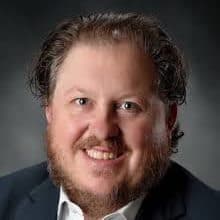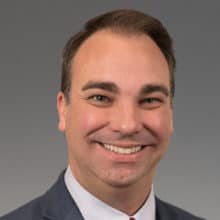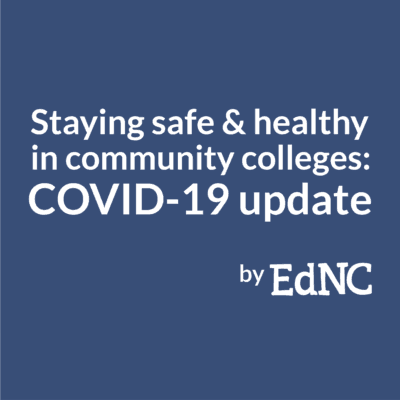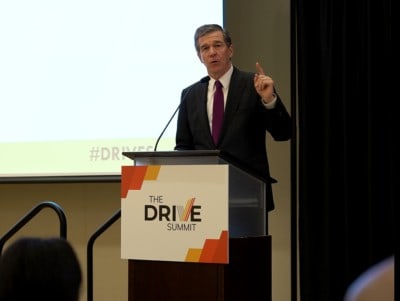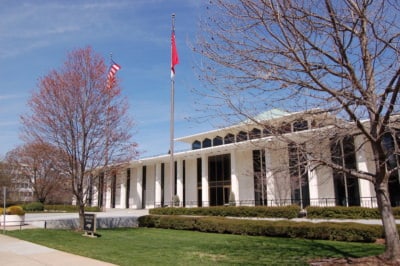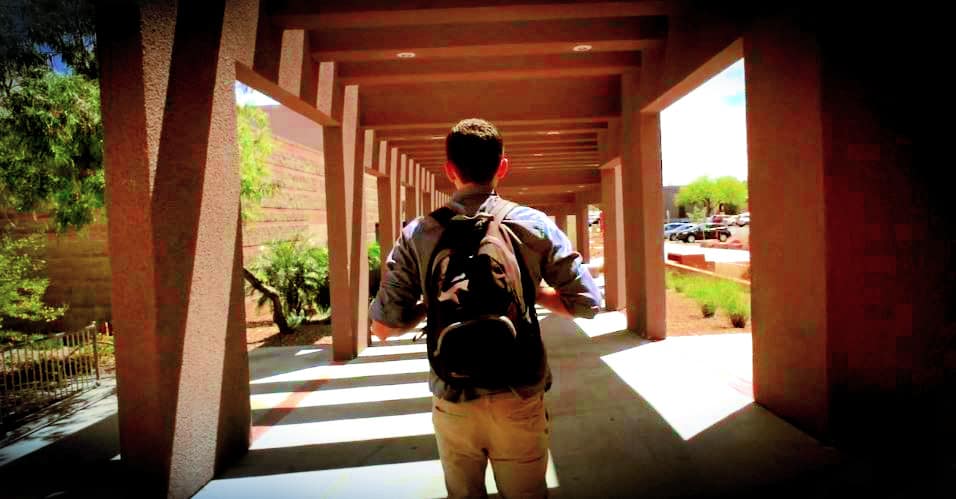
North Carolina faces a looming crisis. Too few North Carolinians have earned or are currently on the path to earn postsecondary degrees or credentials necessary for the jobs of the future. Without a diverse and highly skilled workforce that is made up of citizens with educational credentials beyond a high school diploma, our businesses, corporations, and industries will falter and our country’s economic prosperity will be further threatened. For this reason, MyFutureNC has set a bold goal: By 2030, two million North Carolinians between the ages of 25 and 44 will earn a high-quality postsecondary credential.
It is not possible to meet this goal by just recruiting more students. We must work towards improving student success outcomes, starting with those students currently being served. Furthermore, we must aggressively work to close equity gaps in attainment by race, ethnicity, and income in order to achieve our goal.
As cornerstones of higher education, community colleges play a pivotal role in meeting these goals, currently supporting 5.4 million Americans as they expand their knowledge, improve their career opportunities, and increase their social mobility. These institutions — created for and committed to open access, high quality, and exceptional value — are uniquely situated to support the workforce needs in our country.
To meet North Carolina’s bold goal, we must be equally bold in our approaches to improving student success. One way to reach this goal is to go beyond the data to understand and connect with the students being served who increasingly represent non-traditional, intersectional, and underserved populations.
Today’s community college students represent a variety of backgrounds, experiences, and goals in the higher education classroom. Students enrolling as the first generation in their family to attend college sit next to returning students seeking a new career. The youth population of dual enrollment students collaborate on class projects with single parents seeking a better life for themselves and their families.
They are men and women, civilian and military, young and old, but they are all students pursuing the economic and psychological freedom that comes with educational attainment. Ambitious students seeking a high-quality, low-cost education that puts them on a path to success without incurring insurmountable debt are learning alongside students seeking accessible education, social support, and the stability that our community colleges provide.
They represent the identities of the people of North Carolina — no matter their religion, their political affiliation, their sexual orientation, or their socioeconomic status; however, though each of them has the desire to succeed, their ability to do so often rests in the hands of those guiding them along their educational journey.
Student stories demonstrate that the difference between success or failure of a student can be a single interaction. In fact, when successful students were asked how they were able to overcome hardships or barriers they faced, they often pointed to a single person at their community college who reached out, engaged, or connected with them in an authentic and meaningful way. These small but significant actions can often resonate with students long after the interaction has taken place and can ultimately even be identified as major turning points in a student’s journey. In order for more students to experience this kind of success, we need to meet students where they are by getting to know them as well as their stories and by making connections with them inside and outside of the classroom.
Understanding and connecting to students can provide insights into how they are experiencing the delivery of their education. The power of these student stories and their overall contribution to student success was exemplified in the Emmy-nominated documentary, “No Greater Odds.” This powerful film follows the inspirational stories of five community college students at the College of Southern Nevada.
Barbara, Carlos, Jaklin, Monique, and Tyrone each struggle with complicated family issues, financial difficulties, and other personal obstacles as they seek to better their lives and futures through higher education. Though each of their stories is unique, they represent the stories of not only North Carolina’s students, but the millions of students who enroll in community colleges around the nation every year. Told from the perspective of the students, their families, and the faculty, staff, and administrators who guided and inspired them along the way, this documentary underscores the important relationship between a college and its students.
“No Greater Odds” proves that it is possible to create authentic connections with all students — and that a college culture seeking to build positive relationships can create the transformative change that is necessary. Creating this human-centered approach to serving students starts with getting to know the students and learning their stories. In turn, this allows the faculty, staff, and administration to both identify and empathetically connect to the problems, challenges, and situations that may present as barriers to their educational success. When students see authentic care and concern from those invested in their educational success, they are more willing to not only share the challenges they are facing but also work harder to achieve their goals.
Underscoring the success of — and need for — this student-driven approach across North Carolina’s community colleges has become an integral part of North Carolina State University’s Community College Leadership doctoral program. With support of the Belk Center for Community College Leadership and Research, the leadership of the doctoral program shared the film, “No Greater Odds,” and the students’ stories on the very first day of class. As a result, new doctoral students experienced even deeper empathy and understanding of the students they are (and will be) serving.
Ultimately, they understand that the impact they may have will have far-reaching implications — not only for that one student, but potentially for that student’s current and future family as well. Taking the time to get to know students might be the difference between a family living in generational poverty or creating economic mobility so they can obtain employment and a pathway to prosperity. This perspective, when shared with their institutions as future community college leaders, will help facilitate trickle-down transformation to achieve our state’s goals.
At the end of the day, words matter. Interactions matter. Empathy matters. But these alone are not enough. We must also strive to identify and break down barriers and redesign any structure, operations, and systems that impede student success. At the same time, we must remind students that they too are destined for greatness — and then do everything we can to help them achieve it.
The role of community colleges and the students we serve in North Carolina cannot be overstated, particularly now as we prepare for the new realities in higher education. It is critical that we uphold community colleges as first-choice, high-value institutions that serve students of all backgrounds. With this approach, we will move the needle on overall student success, ultimately reaching North Carolina’s goal of increasing postsecondary educational attainment by 2030.

